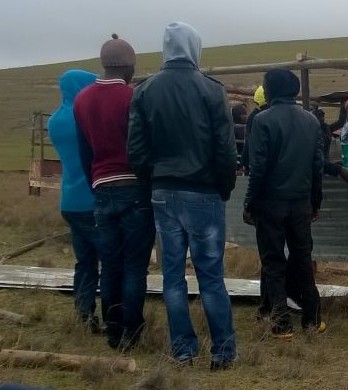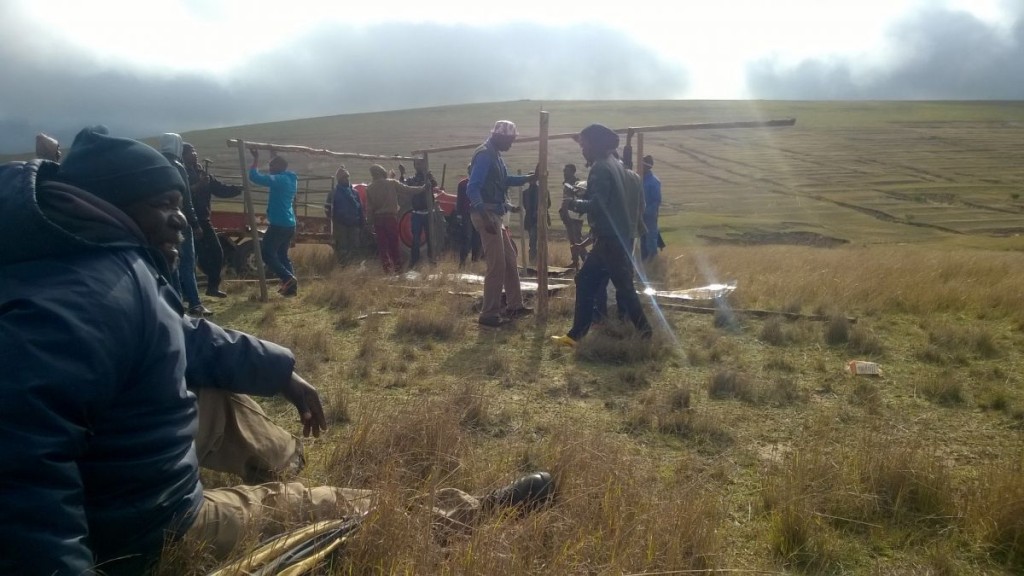
They don’t make young people like they used to – Really?!
This blog is part of a series of stories and observations from time spent in the Eastern Cape of South Africa at the end of 2015.
‘They don’t make young people like they used to”
I bet you’ve heard someone say that? You may have even said it yourself. The Daily Mail-esque rhetoric of the lazy slobbish youth, the hoodie, the chav. It sounds pre-programmed. But what if that cassette tape is wrong? What if we should be paying attention to the B-side?
Can you imagine if your life had lost purpose; if all our lives had lost purpose? I often wonder what impact that would have on the rhythm of our communities.
As I sit with a group of young men on beer crates avoiding the midday sun, the topic turns to their aspirations for their village. In the days leading up to this moment, I had heard of ‘youth crime’ and ‘youth unemployment’; conversations that I imagine resonate across the world. But what I’m presented with are genuinely welcoming young men full of energy to do something. They cite the loss of village farming and livelihood as the start of a different song.
There are many different push and pull factors that saw an end to agriculture in this village ; which I’ll leave for a future blog. But what I want to explore is three of the potential effects of the loss of farming on the community.
 Young men build a traditional hut with wisedom and guidance of some of the village elders.
Young men build a traditional hut with wisedom and guidance of some of the village elders.
Rhythm
Our day to day life has a rhythm; we go about our life and our routines and in turn contribute to the local culture. Think of the same people you meet each morning at the train station or of farming communities whose tempo is tied to the crop cycles and seasons. So what happens when the gap isn’t filled, when we have 10 hours spare a day and the corresponding lack of opportunity to use up our energy?
Purpose
These young people are left without purpose – no one is relying on their gifts. Through the passage of time, as the culture of purpose is forgotten, youth have become the problem – rather than the solution.
We all need to be needed …and young people are no exception.
Connectedness
The passing on of knowledge and wisdom was an opportunity for young people to connect with the older generations; creating, building and growing a connectedness across the village. So what happens when we don’t know our young people? People feel unsafe.
This is a conversation about young people finding their purpose, being connected in the community and having a platform to share their gifts with others. This is a conversation I suspect is relevant in neighbourhoods across the world. Now for the crux – why do we see the young people in our communities as the issue and the problem to be fixed? So the young men are making ends meet doing odd jobs and spending time in groups drinking together to pass the days. Would a programme of youth alcohol awareness alleviate the problem? There feels to me to be more at stake here:
‘They don’t make young people like they used to’
Perhaps they don’t make communities like they used to? We have stripped young people of the opportunity to flourish where they live and have force fed them programmes, reinforcing the belief that they are the problem. However, the alternative for these young people is much closer to home.
I believe that young people have natural allies in this world; the people who have the ability to build bridges, offer direction and support for young people. In next week’s blog we’ll explore the anatomy of this type of resident; the one with a heart of young people and their community.
